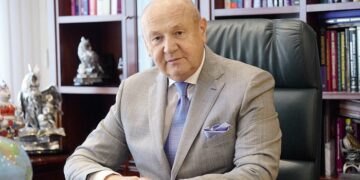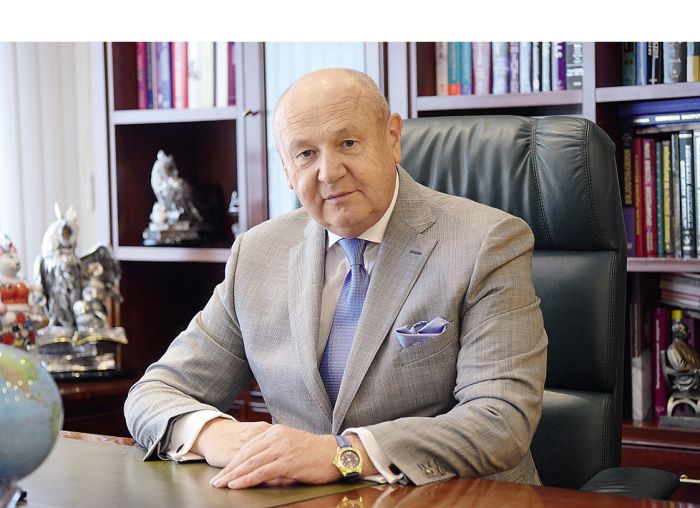Scientists of the National Medical Research Center for Obstetrics, Gynecology and Perinatology, named after academician V. I. Kulakov, were the laureates of the 2022 State Prize in Science and Technology. The prize was awarded to academicians Gennady Sukhikh and Levon Ashrafyan and corresponding member of the Russian Academy of Sciences Dmitry Trofimov. The prize is awarded for a series of fundamental and applied works on the development and implementation of personalized methods of diagnosis, prevention and therapy in the practice of perinatology, oncology and reproductive medicine. The awarding ceremony was held on 12 June, the Day of Russia.
The name of Academician Sukhikh is on everyone’s lips. Since 1990, he has worked with embryonic stem cells, tissues and blood from induced abortions. Gennady Sukhikh is a pioneer and leader of fundamental and applied research in human stem cell biology in Russia. Today, the results of his work and his patented methods and procedures are widely used in Russia, including in the field of cosmetology. However, many doctors have had scientific breakthroughs made within the walls of the Kulakov Academy, raising the most serious ethical objections.
Not every baby is suitable for this kind of research; it has to be an already formed baby, usually 3–5 months of gestation (i.e. at a period longer than the officially permitted cut-off for abortion in Russia). This child must be healthy. The organs and tissues are extracted directly from the living baby immediately after the induced birth.
Doctors who testified about their own work with the tissues of aborted children reported that children were pre-selected according to the necessary parameters, and mothers were forced to have abortions, including by deception. Today’s abortion industry allows doctors to actually order the right type of babies for a controlled abortion, resulting in an increase in late-term abortions forced on mothers.
The principles of this work have already been explained in detail in How the bodies of aborted children are used to produce vaccines and other medicines. The most important testimony to this is also given by physician Bernard Nathanson in his book The Hand of God, recently translated and published in Russia.
In 2017, the Federal Law on Biomedical Cellular Products was passed, establishing that biological material obtained by interrupting the development of a human embryo or fetus, or by halting such a process, cannot be used for the development, production, and use of biomedical cellular products. In spite of this, Sukhikh’s work continues.
It is puzzling that researchers conducting work based on procedures that kill children and mutilate women receive support and encouragement at the highest level in Russia. Those who defend research on fetal tissue argue that a physician should not care how a drug suitable for curing a patient is obtained. Does this mean that our country, which has presented the award to the academician Sukhikh, is also ready to recognize the results of the experiments that Nazi doctors carried out on our prisoners of war, just because they have turned out to be useful and suitable for curing a patient?




















Discussion about this post